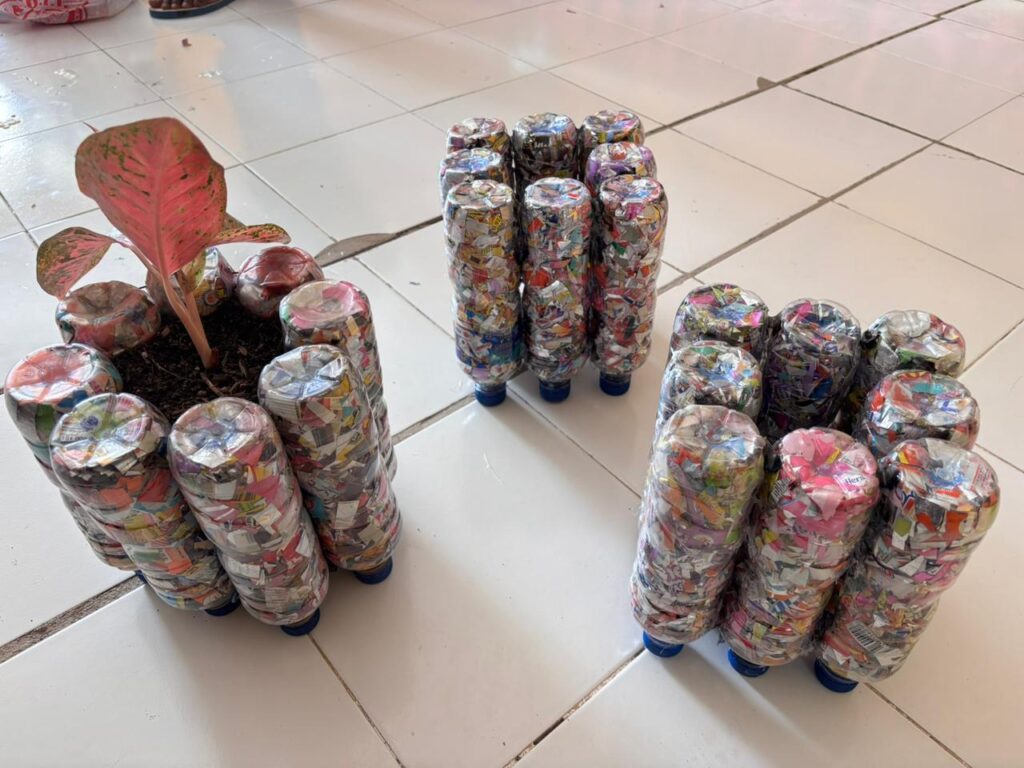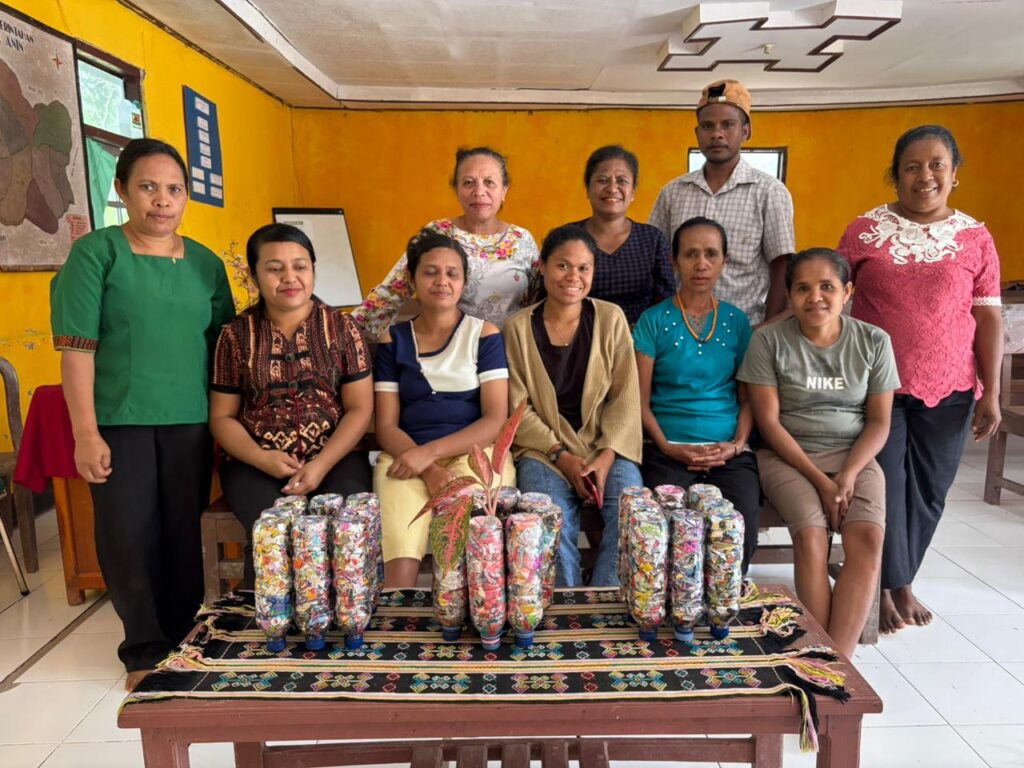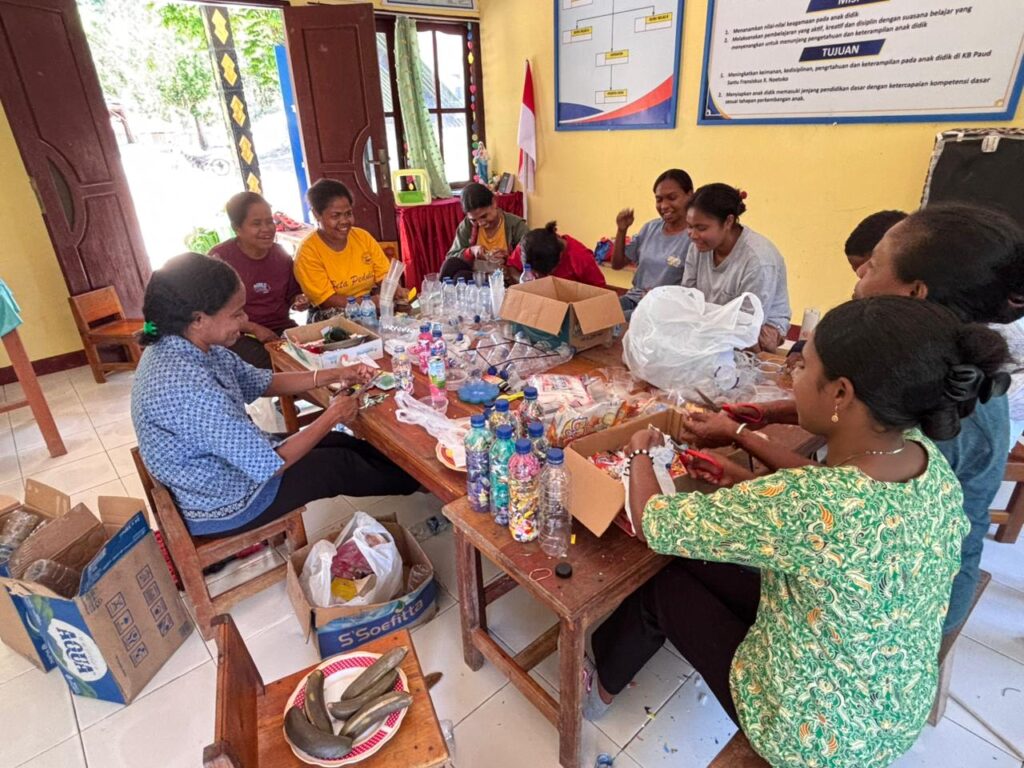For Mama Simea, a resident of Anin Village, South Amanatun Subdistrict, Timor Tengah Selatan Regency, plastic waste had always been a problem with no solution. “All this time, we didn’t know about activities (waste management) like this,” she said.
“We could only burn the plastic after collecting it. The trash was scattered on the streets, in the water, even at home. It easily brought disease.”

Her words are echoed by Dominggus Nenabu, secretary of Anin village, who admitted that waste had long been misunderstood. “We have indeed lacked understanding of waste management because of limited education. The impact is that we often experience diseases like malaria, since trash is frequently thrown away carelessly,” he explained.
Her words are echoed by Dominggus Nenabu, secretary of Anin village, who admitted that waste had long been misunderstood. “We have indeed lacked understanding of waste management because of limited education. The impact is that we often experience diseases like malaria, since trash is frequently thrown away carelessly,” he explained.
These concerns are now being addressed through a community-based waste management initiative carried out by Yayasan Balita Sehat Indonesia with support from Bank of America. Between August and September 2025, villagers from 17 communities and 20 PAUD schools in Sumba Barat Daya and Timor Tengah Selatan have completed learning to transform what was once waste into something valuable.
The process begins simply: families place sacks outside their homes to collect plastic. In addition, the foundation also partners with nearby hotels to collect waste. Once gathered, villagers turn the waste into eco-bricks, flower pots, and handwoven bags, while organic waste is processed into eco-enzyme fertilizer.


Photo left: eco-bricks and flower’s pot made from plastic waste by community village Anin, TTS
Photo right: Mama Simea (back row, second from left) joins Anin villagers in a waste management training session.
For Simea, the training is a turning point. “I believe this activity brings great benefits to the village. We can make flower pots, bags, even recycled paper for betel nut containers. The little children are also involved,” she said after attending the training of waste management, on Friday (19/09).
Dominggus further added, “We are very enthusiastic about the training. We hope this activity can be further strengthened so that we can manage waste even better.”
From burned plastics and scattered trash to usable household products, the change is more than environmental. It is about healthier villages, stronger community ties, and giving the next generation a cleaner place to grow up in.










